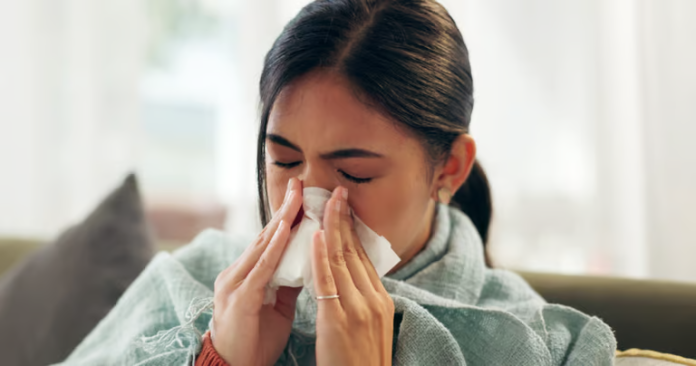Dubai: Doctors in the UAE have cautioned residents against lingering flu and respiratory syncytial virus (RSV) infections.
Dr Rajesh Kumar Gupta, an internal medicine specialist at Burjeel Specialty Hospital in Sharjah, pointed out that this year, flu and RSV viruses have arrived earlier and are more active than in previous seasons.
“This is due to significant variations in weather patterns observed globally,” Dr Gupta said. “More people are falling sick due to changes in immunity, dietary habits, lack of proper hydration, good sleep and exercise. Other reasons include allergies, stressful life, air quality and vitamin deficiencies.”
“A number of cases are testing positive for both influenza A and B, along with atypical bacterial infections such as Mycoplasma pneumonia,” he said.
Dr Gupta warned that these compounded infections could lead to longer recovery times – sometimes up to a month.
“Nowadays, viral infections persist longer than usual – more than one to two weeks, and sometimes up to four – because of frequent exposure in social and work environments, immune status, and age, especially in those with co-morbidities,” Dr Gupta said.
Cough, wheezing
Dr Mohamed Rafique, consultant pulmonologist and medical director at Prime Hospital, Dubai, said, “As we enter the winter season, we’ve seen an increase in flu cases. We’re also seeing RSV infections, which are not only prevalent among children but are affecting the adult population.”
Dr Rafique highlighted an uptick in cases of post-viral bronchial hyper-reactivity, a condition similar to asthma that presents with symptoms such as coughing and wheezing, which can persist for an extended period.
“Post-viral cough, breathing difficulties, and fever are some conditions that exacerbate underlying inflammation in patients with asthma and chronic obstructive pulmonary disease (COPD),” Dr Rafique added.
How to stay protected
Dos:
- Get flu vaccinations
- Maintain a healthy lifestyle
- Proper diet and stay hydrated
- Regular exercise to boost immunity
- Adequate rest and sleep
- Maintain social distance
- Wear masks to prevent spread of infections
- Cover nose and mouth while sneezing or coughing
- Visiting doctor early to get treatment
Don’ts:
- Avoid touching and hugging sick people
- Avoid sharing foods when sick
- Avoid visiting people and socialising
- Avoid playing with animals
- Avoid eating spicy or stale food
- Avoid smoking and alcohol


